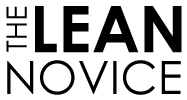The power of habit
Through my journey in life and through my journey in Lean I have found that good habits makes for a solid foundation of every day life. This is true both at work and at home. Presently I am reading “The 7 Habits of Highly Effective People” by Stephen R. Covey. This has gotten me thinking a lot about my own habits.
The other day I saw a commencement speech by a Navy Seal admiral. He listed ten thing to help guide you through life. The first thing he listed was making your bed in the morning. I think most people has seen this in movies about military life at some point. What he did however is expand of why this practice is used through training. The idea is that if you start of your day with finishing a task to a high standard you always know that you have accomplished something that day and you are ready for the next task of the day. A habit of productivity and excellence.
Now this is very interesting and what I have found is that it is a point of contention. Some say it is powerful habit that even though it in itself is useless, the mindset it creates is the true value of this habit. Other people see it as a waste and they might do it occasionally not as a habit. These people might have other habits to the same effect but this I don’t know for sure.
I am thinking that it is different for everyone. What habits you use for creating and maintaining a productive mindset may differ from person to person but I am convinced that it is something everyone would benefit from. Habits also create structure and order in life which might help you focus on what is most important.
On my own part I am struggling to make good habits a part of my daily routine. I tend to get stuck when it comes to going from task to habit. Maybe I should just start making my bed and build from there.


 Since I had learned that Lean was originally from Toyota, it seemed that Jeffrey Likers The Toyota Way was a good place to start. The short of it is that I was hooked immediately. The next book was Lean Thinking by Jim Womack. Again, it really opened my eyes to a whole new world. At this point I didn’t really know who any of the famous Lean-thinkers where but as it happens I had picked a good starting point.
Since I had learned that Lean was originally from Toyota, it seemed that Jeffrey Likers The Toyota Way was a good place to start. The short of it is that I was hooked immediately. The next book was Lean Thinking by Jim Womack. Again, it really opened my eyes to a whole new world. At this point I didn’t really know who any of the famous Lean-thinkers where but as it happens I had picked a good starting point.